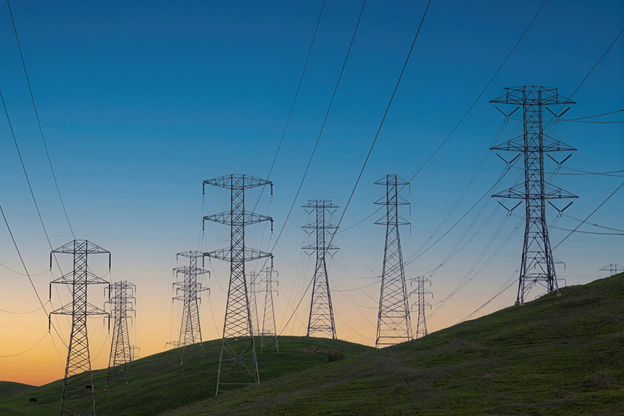Wholesale Electrical Wire Supplier FAQs
13th May 2025
Whether you’re here for solar panel cable, aluminum wire, or Belden security and alarm cable, there’s a great deal of variety and nuance in electrical wire and cable.
Here are some of the most common, basic questions we encounter as a wholesale electrical wire supplier, along with some high-level answers.
Why Is Wire Gauge Important?
Wire gauge, typically measured in American Wire Gauge or AWG, gives an electrical wire’s diameter. The cross-sectional area of an electrical conductor is one of the main determinants of voltage and current-carrying capacity - meaning that AWG is one of the most important ratings you need to know.
What Is Flexible Welding Cable?
Flexible welding cable is a specialty electrical cable with a high conductor strand count and special, chemical and abrasion resistant insulation that is suitable for use as welding cable. Because of its unique attributes it is often also suitable for solar inverters, generator, motor and battery leads.
What Is Solar Panel Cable?
Solar panel cable is electrical cable that is made with a special type of insulation that is rated for resistance against weather and sunlight, specifically for UV-stability. Sometimes the insulation is also abrasion and chemical resistant. This type of cable is commonly used in solar arrays.
Is Marine Battery Cable Suitable for Automotive Use?
Marine battery cable is theoretically suitable for automotive use but the extra cost makes it prohibitive. However, the reverse is not true; automotive battery cable is made with conductors that are not individually tinned, meaning it is not suitable for marine use.
What’s the Difference Between Electrical Wire and Cable?
Electrical wire refers to a single electrical conductor. A cable consists of several conductors, generally individually insulated, all bundled together under a common sheath. Cable may or may not be shielded to protect against electromagnetic interference.
Why Does Strand Count Matter?
Strand count matters primarily because a high strand count is indicative of overall conductor flexibility. The higher the strand count, the more flexible the cable will be. This is of particular importance in flexible welding cable and marine battery cable, in which the highest practical strand count is utilized in order to yield highly flexible cable.
What’s the Best Electrical Wire and Cable Insulation?
That depends entirely on the intended application. In some cases, UV-resistant EPDM polymer is used for its chemical stability and relative abrasion resistance. In other instances, polyethylene or cross-linked polyethylene, sometimes labelled as XLP or XLPE, is used for its chemical stability and general durability.
Are All Electrical Wires and Cables Insulated?
While most electrical wire and cables are insulated, not all are. Some aluminum cables used for overhead power transmission are uninsulated, using air as the insulator; bare copper wire, commonly used for grounding applications, is also not insulated. Omitting insulation in applications in which it is reasonable to do so saves on manufacturing costs.
What Is Bare Copper Wire Used for?
Bare copper wire is typically used for grounding applications, in which the ground serves as an exit into the ground for excess voltage/current in the event of a voltage spike or surge.
What Is the Difference Between Plenum and Riser-Rated Fire Alarm Cable?
Plenum-rated fire alarm cable is rated for use in plenum space, which is either above a drop ceiling or below a raised floor; riser-rated cable is suitable for use in riser space that occurs in the vertical shafts between floors. While all fire alarm cables are more or less rated not to produce toxic smoke as well as to withstand high temperatures and self extinguish once lit, plenum-rated cables are held to higher standards. It is important to use only cable rated for an intended application.
What’s the Difference Between Copper and Aluminum Wire
The obvious difference is that they are made from different alloys; however, copper wire has a higher tensile strength and is physically more durable than aluminum wire. It also offers objectively better conductivity. On the flipside, it is much heavier and more expensive than aluminum wire.
By contrast, aluminum wire, though it is not as durable, offers a better conductivity to weight ratio and is much more cost-effective to transport and install. Consequently, aluminum wire is commonly used in high-tension overhead power transmission, as well as for residential and commercial power transmission and service entry in the form of aluminum triplex wire and quadruplex wire.

What’s the Difference Between Triplex and Quadruplex Wire and What Are They Used for?
Triplex and quadruplex wire are used for power service entry in residential and commercial installations. They are primarily used because they are much lighter and cost effective than comparable copper wire. In some cases, triplex and quadruplex wire are fortified with a steel member that helps prevent deformation and sagging from gravity, wind and ice loading.
What Is Tray Cable Used for?
Tray cable is electrical wire or cable that’s rated for use in cable trays, as opposed to conduits. While cable trays don’t afford the same level of protection to cables as conduits do, trays enable faster and easier installation, inspection, and replacement, as well as superior heat dissipation. This makes tray cable installation the preferred option in many settings.
Choose EWCS Wire for Your Wholesale Electrical Wire Supplier Needs
Need a new wholesale electrical wire supplier? We’re here to support you. Shop our full collection on our website and get in touch with us directly to discuss custom orders. We are more than happy to help.

